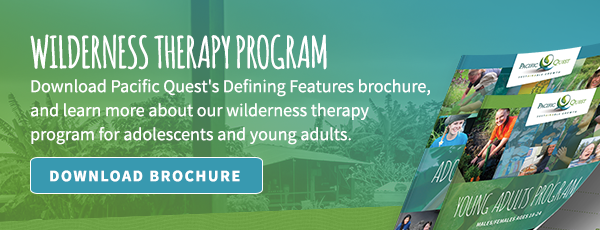A lack of confidence at any age can be a dangerous and overwhelming problem. But feeling capable in a world influenced by peer pressure can be especially difficult for teens. Not only are they already going through a period of rapid development—changing bodies, developing minds and evolving social circles—but they are growing up in a world overpowered by social media which can easily exacerbate social anxiety. Teenagers are becoming less and less authentic, as they come up against pressure to fit in with their peers. Let’s face it, it’s easier to morph into someone else online in hopes of gaining more followers and getting more ‘likes’.
Lacking Confidence and Resilience
During the developmental stage of adolescence, teens undoubtedly feel inadequate at times. It’s during this phase that they start to identify their strengths and perceived weaknesses, and they begin to notice they may not be great at everything (but they may not yet understand that this is completely natural and OK). Because of this, it’s also a time when they are the most susceptible to peer pressure. They may experience social anxiety and begin to exhibit signs of teenage depression.
If your teen lacks confidence, they are less likely to take part in activities, form friendships or have the strength to bounce back from stressful situations. A lack of confidence directly affects resilience. And in turn, a lack of resilience directly affects coping abilities, making them susceptible to peer pressure—even if the consequences are negative.
Building Confidence and Resilience
Peer acceptance is monumental during childhood. In the article, Teens and Social Media, Dr. Donna Wick, Developmental Psychologist who runs Mind to Mind Parent, says, “Adolescence and the early twenties, in particular, are the years in which you are acutely aware of the contrasts between who you appear to be and who you think you are.”
Parents can do many things to help build their teen’s confidence and to heighten their resistance to peer pressure. Here are five tips to help you raise a confident teen as their journey into to adulthood begins:
- Provide the right opportunities for your child to succeed. The best way to instill confidence in your teen is to provide him or her with opportunities to experience success. When your teen succeeds, he or she builds confidence.
- Become a role model—modeling confidence in your own abilities shows your teen what healthy self-esteem looks like.
- Encourage your teen to be his/her real, authentic self, especially when they are posting on their social networking sites. The world works because everyone is different.
- Set healthy boundaries. If your teen makes a poor choice, all too often we run to his or her rescue. Practice responses such as, “Yes, you have a problem, but I have confidence in your ability to solve it.”
- Support you teen’s efforts when something doesn’t work out. Be a sounding board for them to bounce new solutions off of as opposed to feeding them the answers or what you might do. Doing so continues to send the message that you believe in their abilities and keeps lines of communication open.
Should lack of confidence or signs of teenage depression become a persistent and serious issue hindering your teen’s success, wilderness treatment programs like Pacific Quest can help. The principles of our program act to create an empowered sense of self and focus on nurturing healthy relationships with family, friends, peers, and most importantly, self.
